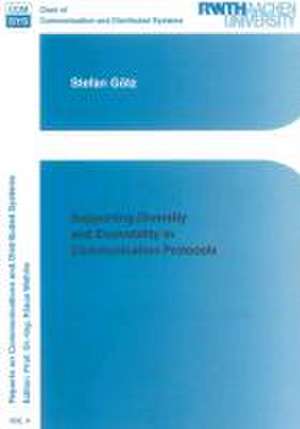Supporting Diversity and Evolvability in Communication Protocols
Autor Stefan Götzen Limba Engleză Paperback – 13 mar 2012
Preț: 173.82 lei
Preț vechi: 217.28 lei
-20% Nou
Puncte Express: 261
Preț estimativ în valută:
33.26€ • 35.57$ • 27.73£
33.26€ • 35.57$ • 27.73£
Carte indisponibilă temporar
Doresc să fiu notificat când acest titlu va fi disponibil:
Se trimite...
Preluare comenzi: 021 569.72.76
Specificații
ISBN-13: 9783844008913
ISBN-10: 3844008918
Pagini: 170
Dimensiuni: 149 x 211 x 12 mm
Greutate: 0.24 kg
Editura: Shaker Verlag
ISBN-10: 3844008918
Pagini: 170
Dimensiuni: 149 x 211 x 12 mm
Greutate: 0.24 kg
Editura: Shaker Verlag
